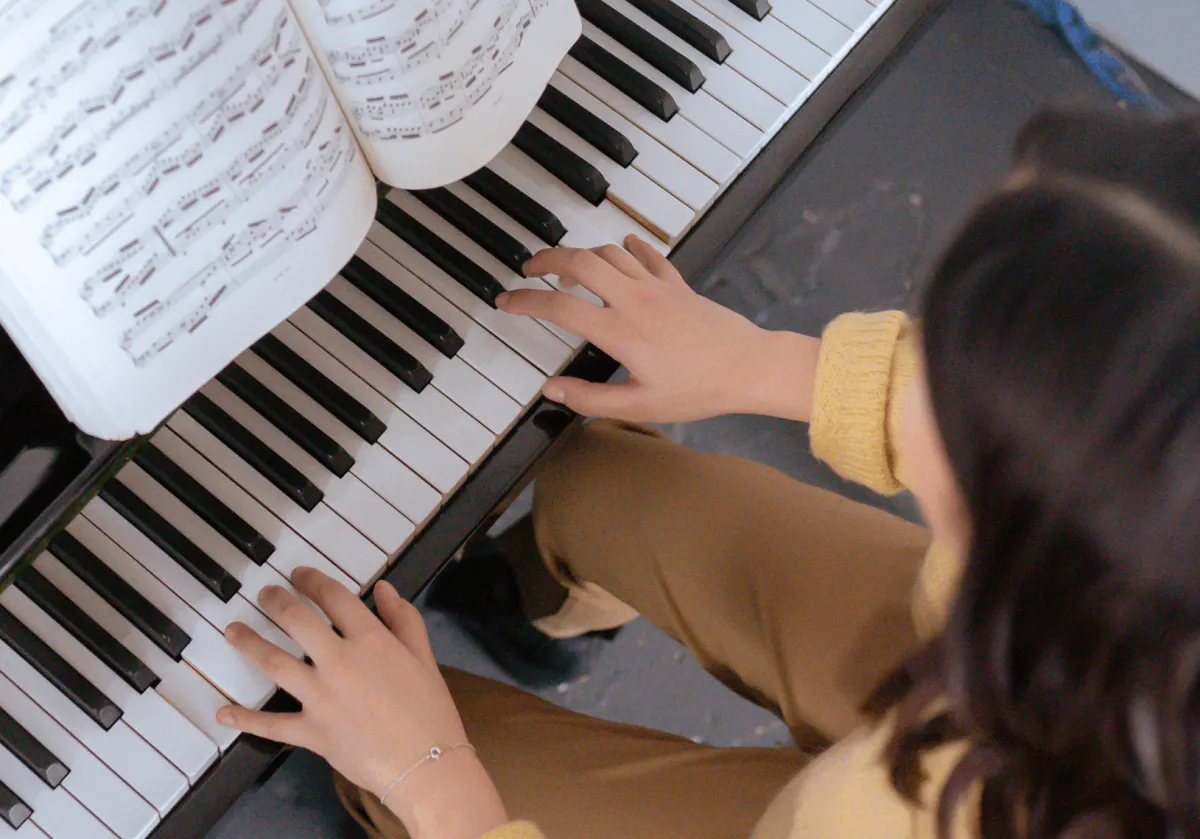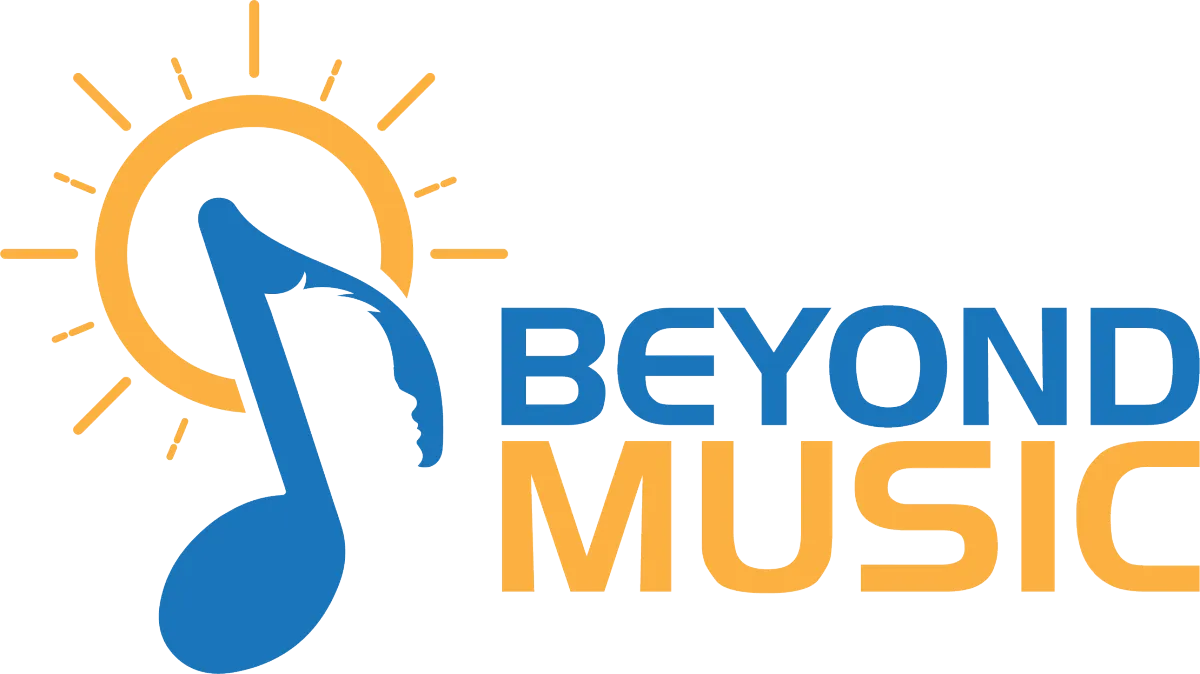
Parenting musicians
Learning the piano from scratch.
Tuesday, February 28, 2023
When learning any instrument from ground zero some immediate doubts and questions pop up in our minds like "How do I start learning from scratch?" or "Should I learn by myself or find a teacher?" and even "How long will this really take if I started today?". All questions I had in my mind when I began piano lessons as a child, and again when I picked it back up in college. I trained myself by ear as an adult, but that knowledge ultimately limited me, and as I began playing for my hometown church in Detroit, MI I noticed a huge void in my understanding. I had learned as much as I could in my little dorm room but if I knew what I know now after changing my major to pursue music in college this is how I would organize my beginner stage in terms of skills that would have kept me from backtracking long term.
1. Posture
Just like sitting at the dinner table, there is piano etiquette that kicks off that foundation we talked about earlier. Relaxing your shoulders and elbows, keeping your back straight, and sitting at a comfortable distance from the piano are must do's before learning.
2. Mindset
Remember, your emotions and the music you create go hand in hand. So, whatever you are feeling will translate to the sound and quality of your music. I always pray before entering a practice or learning session, to begin with, a clean slate.
3. Rhythm
When playing in any capacity, the rhythm will carry you. Build basic rhythmic skills like clapping or singing basic rhythms to gain confidence.
4. Ear training
This is where I began, like most who are self-taught, and this is where I had the most fun! Learn your notes and begin with a simple five-finger exercise or scale. Sing while you play, and after mastering the notes on the piano, quiz yourself. You can get your friends/family involved by keying any note and guessing what it is. If you want to shake things up, sing a note, and guess what note you sang!
5. Dexterity
Dexterity on the piano simply put means being able to perform a difficult action quickly and skillfully. Using a metronome practice your scales at 50-60 bpm and slowly increase your speed. You and your metronome will be best friends in your budding stage. I still use my metronome today and thankfully was pushed to develop my dexterity mostly in church (Pentecostal to be exact if you know, you know!).
6. Finger strength
Having strong fingers comes with practice, practice, and more practice. Think about when you first learned how to type it was like a baby first learning how to walk, clumsily, and sometimes painfully. Stretching that pinky up and down the keyboard was not easy. The same rules apply, the more you do exercise the muscle the stronger your dexterity will be.
7. Music theory
Here's the part no one likes. THEORY, scary word? Not so much! Knowing what you are playing is the door that is locked for so many seasoned musicians who never learned music theory. Accept and embrace the challenge by entering through that door and you will learn your note values, flats, rests, sharps, when to play, how loud or soft to play, and so much more. This will set you apart as a musician if you take the time in the beginning stages.
8. Sight-reading
Last but not least, sight reading is the application of all your foundational baby steps. Understanding time signature, clef signs, and if the song repeats are indications of moving in the right direction. I recommend starting small with nursery rhymes or simple songs that repeat themselves.
Remember, celebrate the small wins. Music is a language we can all speak if we take the time to learn it. Build that solid foundation, it will never leave you and you will never regret it. Now get out there and go for it!
- Kevin Daniels
Contact me: [email protected]
Follow me for more: @kev.on.keys

Parenting musicians
Learning the piano from scratch.
Tuesday, February 28, 2023
When learning any instrument from ground zero some immediate doubts and questions pop up in our minds like "How do I start learning from scratch?" or "Should I learn by myself or find a teacher?" and even "How long will this really take if I started today?". All questions I had in my mind when I began piano lessons as a child, and again when I picked it back up in college. I trained myself by ear as an adult, but that knowledge ultimately limited me, and as I began playing for my hometown church in Detroit, MI I noticed a huge void in my understanding. I had learned as much as I could in my little dorm room but if I knew what I know now after changing my major to pursue music in college this is how I would organize my beginner stage in terms of skills that would have kept me from backtracking long term.
1. Posture
Just like sitting at the dinner table, there is piano etiquette that kicks off that foundation we talked about earlier. Relaxing your shoulders and elbows, keeping your back straight, and sitting at a comfortable distance from the piano are must do's before learning.
2. Mindset
Remember, your emotions and the music you create go hand in hand. So, whatever you are feeling will translate to the sound and quality of your music. I always pray before entering a practice or learning session, to begin with, a clean slate.
3. Rhythm
When playing in any capacity, the rhythm will carry you. Build basic rhythmic skills like clapping or singing basic rhythms to gain confidence.
4. Ear training
This is where I began, like most who are self-taught, and this is where I had the most fun! Learn your notes and begin with a simple five-finger exercise or scale. Sing while you play, and after mastering the notes on the piano, quiz yourself. You can get your friends/family involved by keying any note and guessing what it is. If you want to shake things up, sing a note, and guess what note you sang!
5. Dexterity
Dexterity on the piano simply put means being able to perform a difficult action quickly and skillfully. Using a metronome practice your scales at 50-60 bpm and slowly increase your speed. You and your metronome will be best friends in your budding stage. I still use my metronome today and thankfully was pushed to develop my dexterity mostly in church (Pentecostal to be exact if you know, you know!).
6. Finger strength
Having strong fingers comes with practice, practice, and more practice. Think about when you first learned how to type it was like a baby first learning how to walk, clumsily, and sometimes painfully. Stretching that pinky up and down the keyboard was not easy. The same rules apply, the more you do exercise the muscle the stronger your dexterity will be.
7. Music theory
Here's the part no one likes. THEORY, scary word? Not so much! Knowing what you are playing is the door that is locked for so many seasoned musicians who never learned music theory. Accept and embrace the challenge by entering through that door and you will learn your note values, flats, rests, sharps, when to play, how loud or soft to play, and so much more. This will set you apart as a musician if you take the time in the beginning stages.
8. Sight-reading
Last but not least, sight reading is the application of all your foundational baby steps. Understanding time signature, clef signs, and if the song repeats are indications of moving in the right direction. I recommend starting small with nursery rhymes or simple songs that repeat themselves.
Remember, celebrate the small wins. Music is a language we can all speak if we take the time to learn it. Build that solid foundation, it will never leave you and you will never regret it. Now get out there and go for it!
- Kevin Daniels
Contact me: [email protected]
Follow me for more: @kev.on.keys
Need Beginner Piano Lessons?
Learn online at your own pace.
Try our beginner course free for 1-month.
Apply what you have learned in 30 days.
Simple and interactive music lessons for the whole family.

